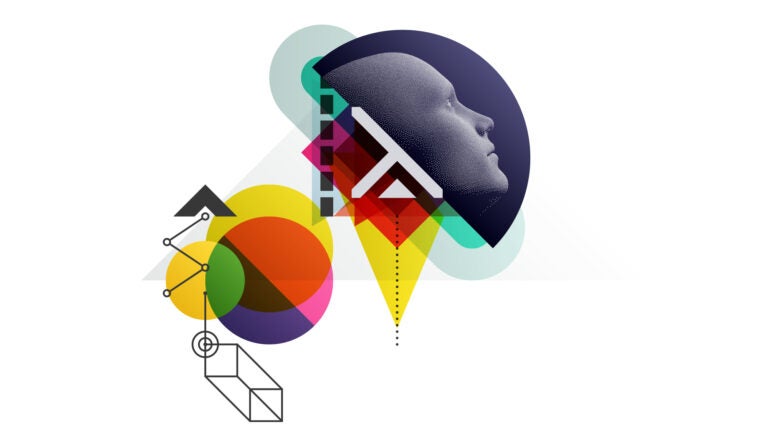
How will AI shape humanity’s future?
ChatGPT produced a worldwide clamor when it debuted in November 2022. Eager converts declared that generative AI will thrust humanity to new heights, in the vein of past technological leaps like human spaceflight. Others are convinced it will only worsen inequalities, maybe even doom society to a future lived in the shadow of intelligent machines.
Scholars recently sat down for a Dornsife Dialogue to discuss the impact of generative AI.
Why it matters: Experts believe this technology may radically reshape the workplace and impact politics. Regulating this technology appropriately, they say, will likely be essential to avoid upending our world.
The big picture: What is generative AI and why is it so ground-breaking?
- Unlike standard computer software, which requires step-by-step instructions from humans to produce content, a generative AI program can create complex images or writing with just a simple human prompt.
- This form of AI also learns quickly over time, improving its output.
What they’re saying: Generative AI platforms such as ChatGPT have created quite a stir. This year, for the first time, generative AI programs have moved from research facilities to home computers.
- “I can log in to an open AI system [like Midjourney] now and do incredibly amazing things that I wasn’t able to do previously in the comfort of my own home,” says Ziyaad Bhorat, associate director of the new USC Center on Generative AI and Society.
And the technology’s abilities are sparking big philosophical debates.
- “Expression, conversation and creation … are things we tend to really closely associate with being human. They raise larger questions around the boundaries of the human,” says Jennifer Peterson, associate professor of communication at the USC Annenberg School for Communication and Journalism.
Impact: New technologies have often produced considerable concern, adds Peterson, who is also director of the graduate certificate in science and technology studies at USC Annenberg.
- In the 1950s, concerns about factory automation generated great anxiety in workers. Research has shown that those whose jobs might be impacted by automation vote differently than those less affected.
- “When radio first came out, people thought it was going to homogenize culture and people’s minds,” she says. “A lot of new technologies seemed incredibly disruptive at the beginning, and then over time they become institutionalized.”
Some of the most prominent questions center around how AI should be regulated.
- Event panelists recommended regulators be specific and targeted because AI will impact far more than just creative industries.
- Along with government, private industry should be expected to regulate, through self-regulating bodies and within corporate trust and safety departments.
- Global leaders should produce agreements, such as banning AI involvement in nuclear warfare decision-making or military applications that could go catastrophically haywire.
- Intellectual property concerns will need sorting. Thus far, the Supreme Court has not allowed a copyright on AI generated art, creating limits on how profitable it might be for a maker. Copyrighted books written by humans have also been used to train AI — so far largely without author permission.
What to watch: Unlike past advances in technology, which replaced working-class jobs such as those on assembly lines, AI is most adept at tasks currently done by white collar workers. This could mean office jobs dry up while retail jobs, manual labor and skilled trades like plumbing stick around longer.
- One new employment opportunity that AI could generate? Positions authenticating which work was actually done by a human.
Between the lines: Much of the hidden labor behind AI is done by underpaid workers in unsafe conditions.
- Rare earth materials for servers that host AI come from dangerous mines.
- The repetitive processing, labeling and flagging of data is already often completed by poorly paid “digital service workers,” usually in the Global South.
“Unless there is some mechanism by which we can own these systems in a meaningful manner, which is often not the case, we are always going to be at the behest of those who can control these systems and manipulate them to certain effects,” says Bhorat.